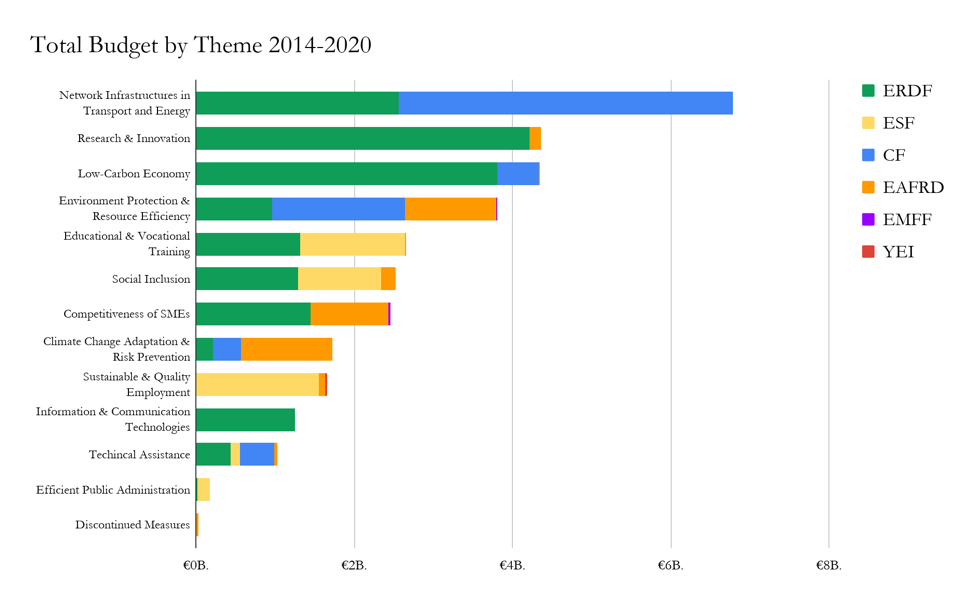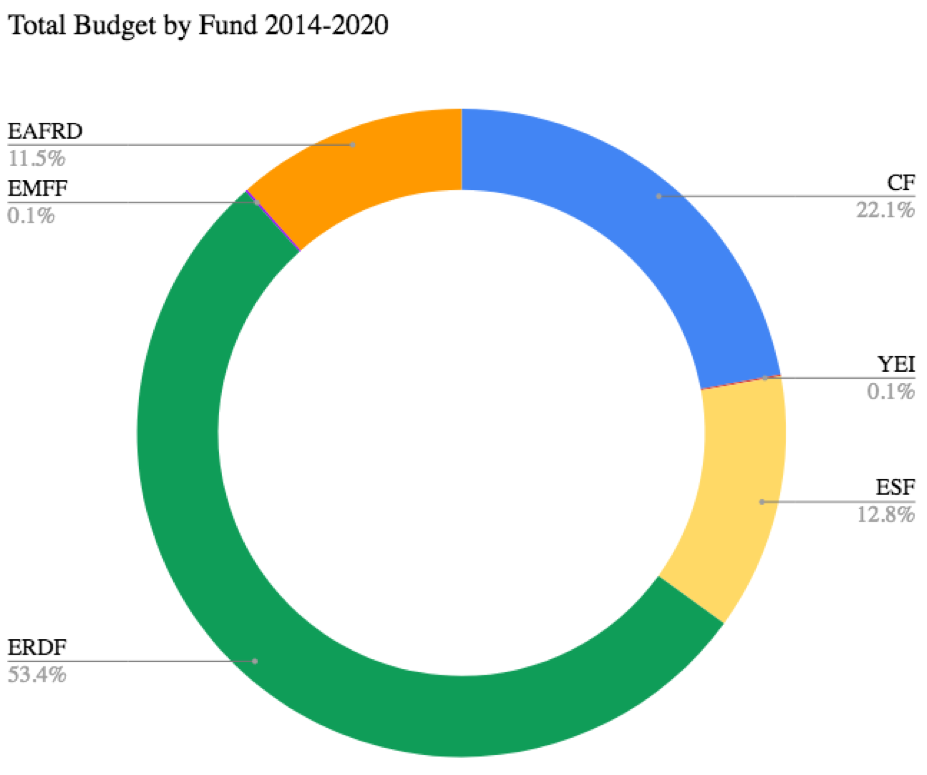News
Country Profile | Czech Republic

Through 11 national programmes, the Czech Republic has been allocated €23.87 billion from ESI funds for the duration of the 2014-2020 Multiannual Financial Framework; an additional national contribution of €8.87 billion take Czechia’s total budget to €32.7 billion. This budget is designed to support the socio-economic development of the country and is to be invested in:
- Supporting sustainable transport, removing bottlenecks in key network infrastructures and closing the gaps in the Trans-European Network (TEN-T), in order to make the country’s region more accessible;
- Supporting the shift to a low-carbon economy by increasing the production of energy from renewable resources and reducing the level of greenhouse gases;
- Investing in research, technological development and innovation, boosting R&I structures and capacity, and improving cooperation between the research sector, businesses and tertiary education;
- Contributing to environmental protection and the efficient use of resources, improving water quality, waste management and air quality;
- Promoting sustainable and quality employment and support labour mobility, with a focus on low-skilled, older and young people;
- Supporting social inclusion by improving the quality of social and health services;
- Making the public administration and justice system more effective and transparent.
Czechia’s main theme of investment for the 2014-2020 Financial Framework is the improvement and development of key network infrastructures in both the transport and energy sectors. For this specific theme, the European Regional Development Fund (ERDF) and the Cohesion Fund (CF) have assigned a combined budget of €6.7 billion, which is intended to be used mostly for the development of new transport and energy infrastructures.

Chart 1 shows that the Czechian government gives particular attention to research and innovation, with more than €4 billion granted mostly by the ERDF: this budget is going to improve the already existing research structures, as well as to enhance the cooperation between the private sector, research institutions and universities. In addition, many enterprises are being helped to introduce new products into the market, boosting their overall competitiveness and revenues. Of great relevance for the government’s agenda are the themes related to the environment: transitioning to a low-carbon economy is crucial, and for this reason the ERDF, CF and the European Agricultural Fund for Rural Development (EAFRD) have allocated together €4.3 billion; in addition, enhancements to resource efficiency and environmental protection are receiving funding from the ERDF, CF and EAFRD for up to €3.8 billion. These two budgets are set to improve water and air quality, as well as waste management, and together they will reduce the carbon footprint of many factories around Czechia.
In order to understand thoroughly the composition of the EU funding budget of the Czechian government, Chart 2 breaks down the amount of money that each Fund is giving to the country, by showing their share in the €32.7 billion budget.

Chart 2
Chart 2 allows us to observe that the ERDF alone with 53.4% has assigned more than half of the total budget, granting Czechia more than €17 billion. These €17 billion are being invested mainly in themes regarding the environment, resource efficiency, research and innovation, but ERDF funding can be seen in almost all the different themes present in Chart 1. With 22.1% and €7.2 billion being invested, the CF is helping Czech Republic improve its national transport and energy infrastructure, having in mind the goal of closing the current gaps in the Trans-European Transport Network (TEN-T). The European Social Fund contributes to the 2014-2020 Financial Framework budget with 12.8%, meaning €4.2 billion allocated to Czech Republic. This budget is mainly invested for improvements in the educational and vocational sector, for the creation of new, sustainable jobs, and for the promotion of social inclusion. An extremely marginal role is played by the Youth Employment Initiative (YEI) and the European Maritime and Fisheries Fund (EMFF) that account to only 0.1% each, and less than €100 million allocated combined.
In the matter of absorption rate, with a 25% share of spent funding from the European Structural and Investment Funds, the Czech Republic has one of the lowest percentages in the European Union, being 3% below the European average of 28%. Likewise, in terms of assigned funding from ESIF Czech Republic reached a total of 63%, 2% below the EU average. In addition, many projects that were started in the first years of the 2014-2020 Financial Framework have not passed the 3-year deadline, within which they needed to absorb the negotiated funding, meaning that these projects lost all of the funding. Nevertheless, things for Czechia are looking brighter: in fact, the data shows that until the end of 2017, rates for spent and allocated funding reached only 11% and 46% respectively, whereas from the beginning of 2018 the same numbers jumped up to the abovementioned 25% and 63%, recording an impressive spike. The country has the full potential to continue on this improvement path in 2019 and 2020, providing the country with new research facilities and transport infrastructure.
Country facts:
Name: Czech Republic
Capital: Prague
Government: Parliamentary Constitutional Republic
Population: 10,610,947
Area: 78,866 km2
GDP per capita: €20,570
Currency: Czech Koruna (Kč/CZK






